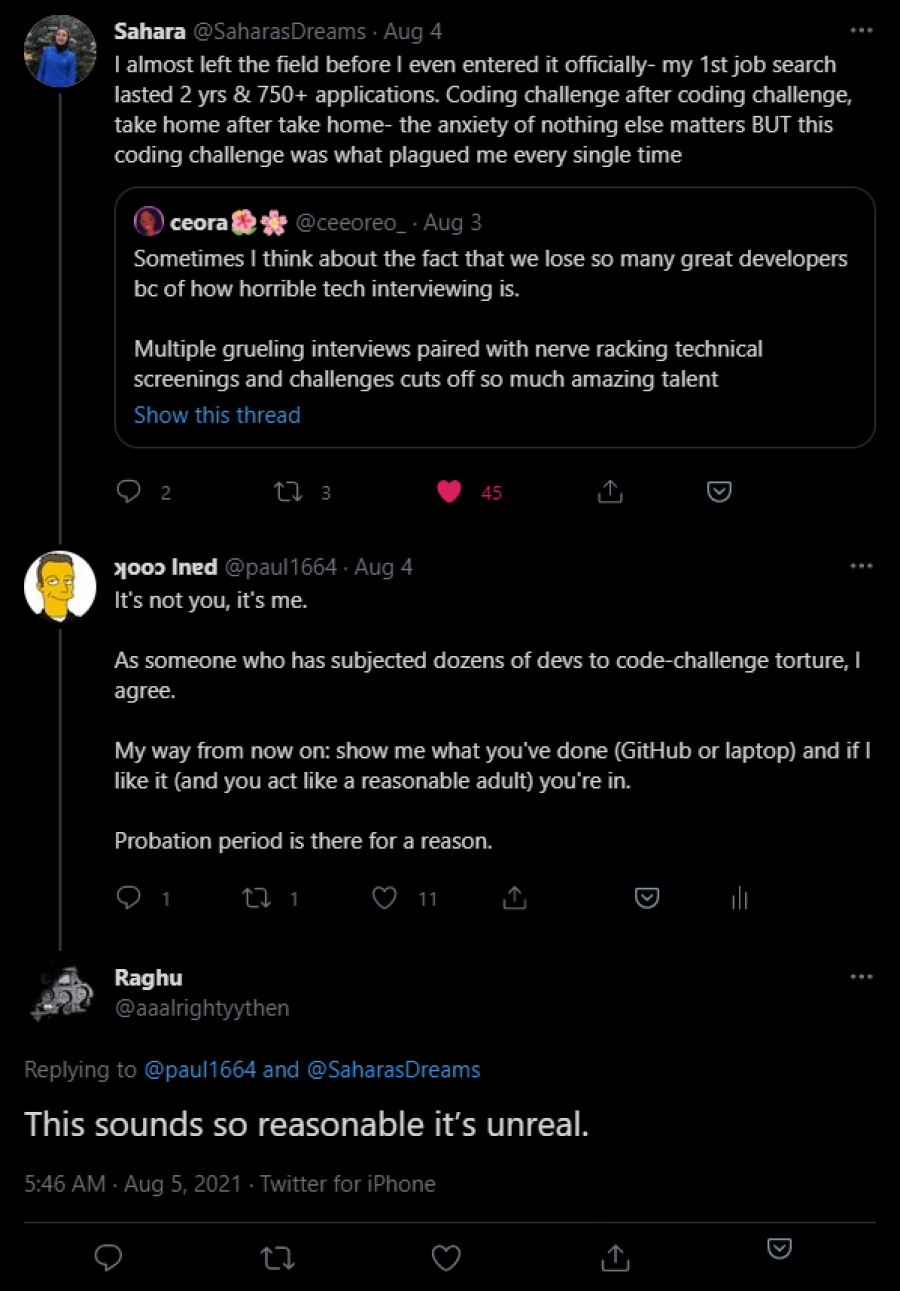My recent reply to a couple of tweets about the hiring process just blew up (40 engagements might not be much to you but it means a big deal to me).

The trouble with coding challenges
It's quite simple: nobody like coding challenges.
For the employer:
- Finding a challenge in the appropriate stack, at the appropriate level of difficulty is hard.
- Appraising skills and abilities is subjective.
- Coding isn't just about the code. It's about domain knowledge and understanding the business. It's interacting with other human beings, all of whom have different skills, abilities and temperaments.
- A good developer doesn't necessarily make a good human being. Even if the candidate is strong technically, they may be an absolute arse to work with.
For the candidate:
- Nobody like to be closely examined under duress (duh!).
- Some people struggle under pressure. We've all had that feeling where we walk out of an interview and suddenly realise "I should've said..." or "Oh, they were clearly testing my...".
What I'm trying
Every company has a probation period. Without exception, like the setting of the sun and the rising of the moon, every company has a probation period.
The reasoning for the probation period is: if the candidate doesn't work out for any reason then they can be terminated with no consequences.
So, rather than torture candidates with code challenges and dubious interrogations, I plan to use the probation period as it is intended - a long term way to understand how and where a candidate can fit into the organisation.
The interview
The interview is no more than an hour, so accept there's only a limited view I can form of the candidate.
In that hour I want to find two things:
- Can they code near to or at a required level?
- Are they are fully functional adults who a able to live with, learn and develop alongside other grown-ups. No "10X developers", no "brogrammers", just people who can work calmly on tasks, help and be helped when needed and are can grow and develop over time.
Maybe I'll ask them to bring in a project that they are proud of, one that shows their expertise in a favourable light.
I think in the limited time available this is probably the best fairest opinion you can make of someone.
The probation period
During the probation period we both have the opportunity to understand the "level" of their skills, what they are strong at (technical, adaptable, personable) and what they're not and whether the deficits can be corrected.
Hopefully at the end of one/two/three months I'll have formed a truer opinion, at least one better than a couple of technical torture-tests could provide.
Tell me what you think
Tweet me and let me know what you think!



